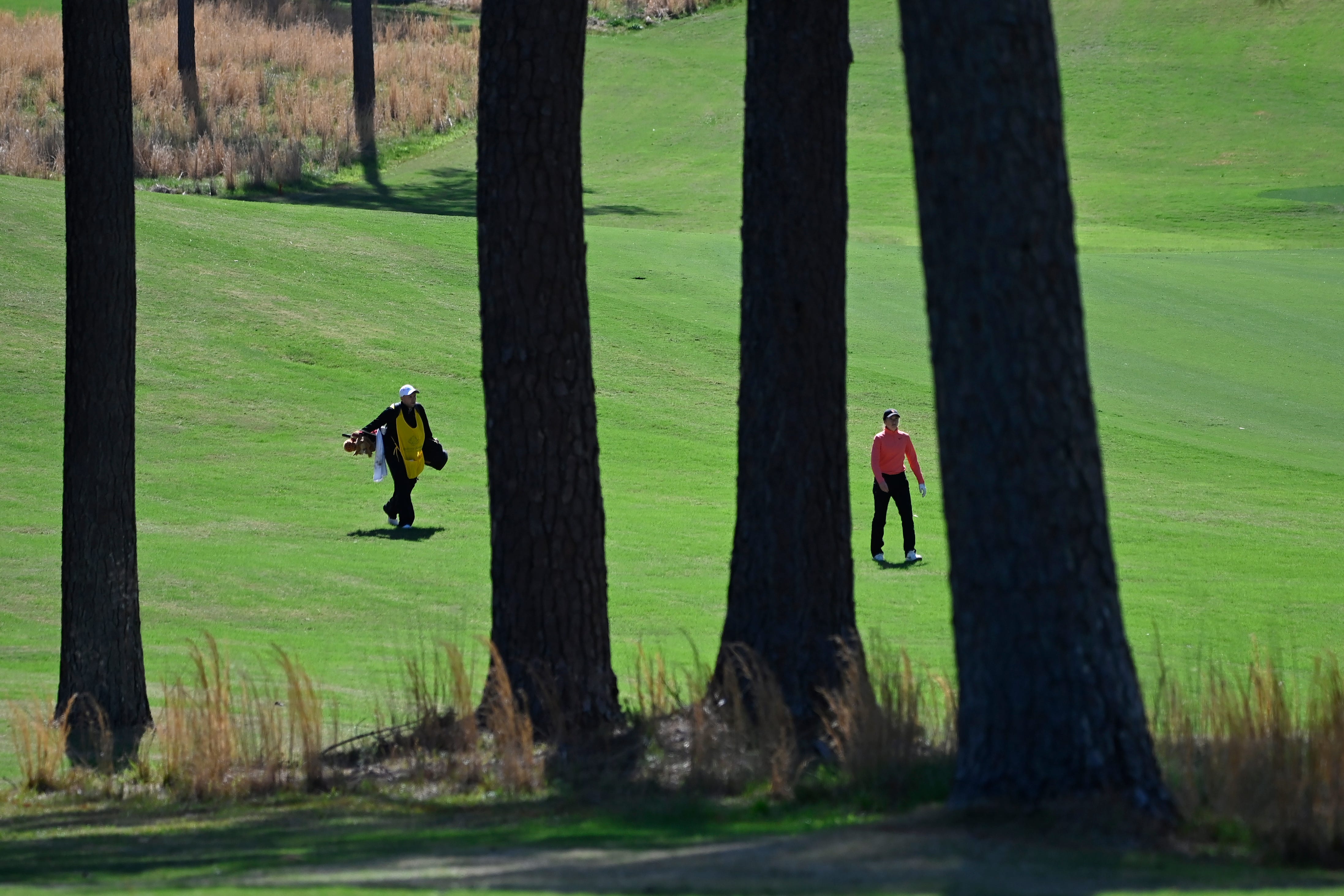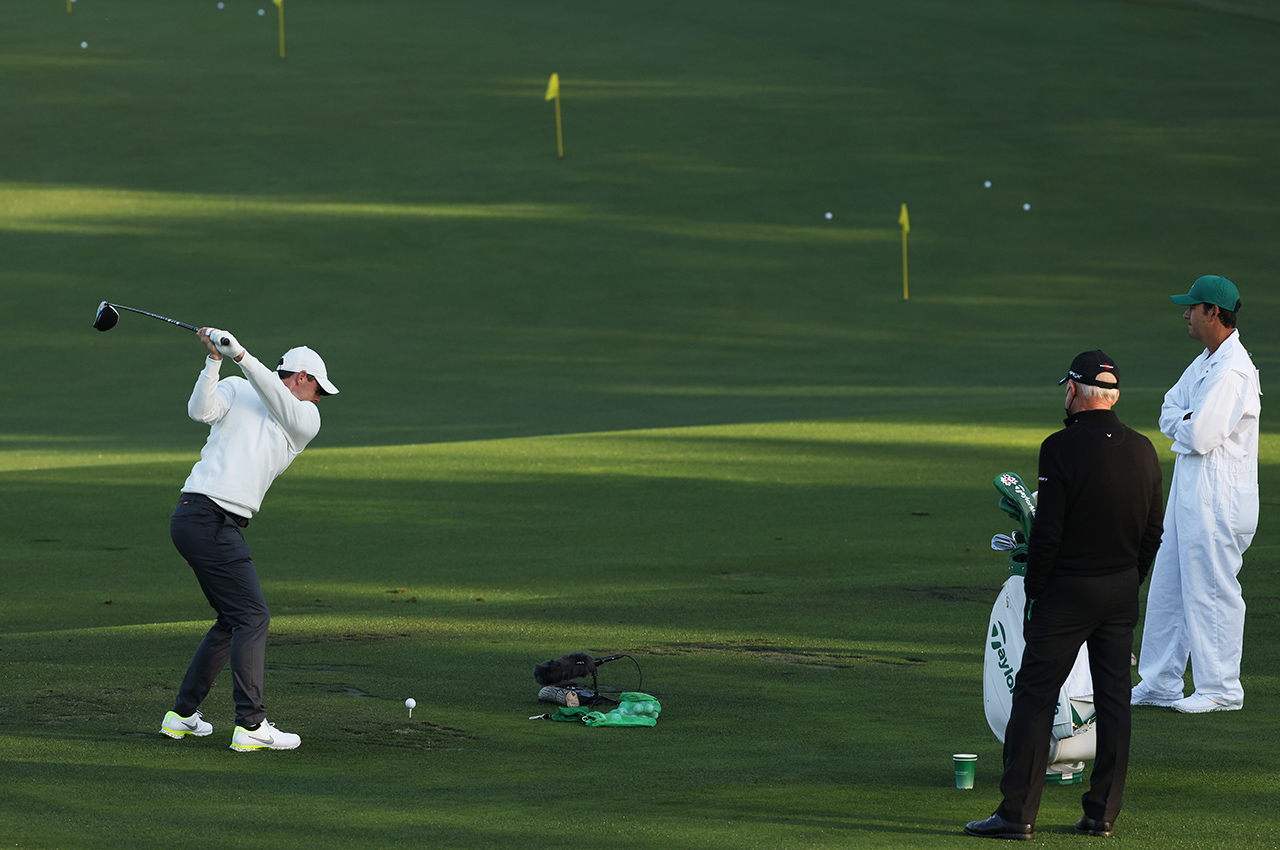
At most PGA Tour events, the large 18-wheelers filled with golf equipment to service players park as close to the driving range as possible. In the days before the COVID-19 pandemic, the trucks were a beehive of activity, with players, caddies and agents coming and going. Some even have sofas, televisions and lounge areas designed for meetings.
At the Masters, like so many other things, it’s different. Those trucks park across Washington Road and the technicians, given special badges, have to go in and out of the club to take things to and from the players. Access to the range itself is limited, so there are numerically fewer people milling around too.
In truth, there is not typically a lot of action in the PGA Tour vans during Masters week, aside from being sure staff players get their commemorative bags, headcovers and accessories. Some players get the lofts and lie angles in their irons checked, and a few might have new grips installed, but if you are doing serious driver testing on the Monday or Tuesday of the Masters, you probably don’t need to worry about having a place to stay after Friday afternoon.
Masters: TV information | Photos | Heat Index | Fantasy
There is a popular misconception when it comes to wedges and the Masters. With the greens being so fast and having so many slopes, most people think that golfers want brand-new wedges to ensure the grooves are as sharp as possible. While it’s true the players want sharp grooves to maximize spin and control, they like to use them for a few rounds to “break them in” before Masters Week.
Why? According to Aaron Dill, the PGA Tour rep for Titleist Vokey Design wedges, golfers want to have confidence that the sole configurations and the bounce are going to react in a predictable way. For elite players, turf interaction is as important as sharp grooves, so before wedges go into the bag at Augusta National, players want to know exactly how they will perform from tight lies, sand and the fairway.
Lee Westwood, who is playing his 20th Masters this week, has another take when it comes to wedges at the Masers.
“Normally I carry four wedges, but this week I’ll only carry three,” said Westwood on Tuesday. “There are very few shots between, say, 90 and 150 yards around here, so there is not really the need for as many wedges.”
Taking out his Ping fourth wedge and going with a pitching wedge, a sand wedge and lob wedge means Westwood can add another club to his bag.
“I normally put a 5-wood in the bag this week,” he said. “I tend to find that there are quite a few shots, for me, from say 230 to 240 where you have to flight it high. I’m thinking of the second shots into 2 and 15. The fourth can be as much as a hybrid or a 5-wood in certain conditions, so I set the bag up accordingly.”
One thing that you will see in the practice area that has become a fixture at every event is a pricy launch monitor either beside or behind just about every player on the range – Dustin Johnson, Jordan Spieth, Justin Thomas, Francesco Molinari, Phil Mickelson, Bryson DeChambeau, Xander Schauffele and Paul Casey. Everywhere you looked there was either an orange TrackMan 4 or an upright-show-box-sized Foresight GCQuad.
None of the players were using these devices to test new drivers or shafts, but many pros now use these $10,000 to $20,000 machines on the range and during practice rounds to gather data on how they are swinging and how the ball is reacting. Plus, because the tournament range at Augusta National has target greens that replicate some greens found on the course, players can gauge which clubs might be the best options based on the weather conditions and how they are hitting that day.

